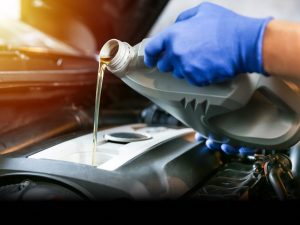Fuel pumps are essential to the operation of commercial vehicles because they provide the engine with the gasoline it needs to run smoothly. Nonetheless, a number of problems could occur and result in a decline in engine performance and fuel efficiency. Fleet managers and owners who want to keep their cars in top shape must comprehend these typical fuel pump issues and how to fix them.
Typical Fuel Pump Issues
Electrical failures, leaks, and fuel starvation are common commercial vehicle gasoline pump issues. When the pump doesn’t deliver enough gas, the engine can starve, stall, or start poorly. Physical damage, corrosion, and wear can cause fuel line leaks. These can affect performance and pose fire concerns. Electrical issues like relay failures or circuit shorts can cause pump failures, leaving cars stranded and preventing operations.
Signs to Look Out for
Fleet management can save time and money by detecting gasoline pump faults early. A broken fuel pump causes poor fuel economy, engine misfiring, and fuel tank noises. Slow starting or sudden stopping is a clear symptom of a gas supply issue. By monitoring these signs regularly, you can discover problems early and plan maintenance or repairs.
Strategies for Preventive Maintenance
Maintenance must be proactive to reduce fuel pump issues. Regular fuel system checks include leak detection, fuel line inspections, and pump pressure tests can help identify concerns. Clogged gasoline filters can strain the fuel pump and cause early failure, so change them according to manufacturer instructions. Cleaning or replacing fuel injectors prevents debris from damaging the pump and keeps the fuel delivery system clean.
Methods of Repair
Understanding the most effective repair techniques is essential when fuel pump issues occur. Repairs could include changing the gasoline pump, sealing leaks, or taking care of electrical problems, depending on the problem. If there is significant wear or corrosion, the pump may need to be completely replaced. For optimal functionality to be restored, high-quality, compatible replacement parts must be used. When it comes to electrical problems, a comprehensive diagnostic examination can identify the source of the issue and enable targeted repairs to be made that can efficiently fix the problem without having to replace the entire fuel pump system. Seeking professional Auto Repair in Columbia, SC can ensure that these repairs are done correctly and effectively.
Conclusion
Fleet managers may avoid needless downtime and maintain their cars by being aware of the various gasoline pump problems that commercial vehicles encounter. For fuel systems to last a long time, routine maintenance and inspections are essential. When issues do occur, prompt action can effectively resolve them and maintain the smooth and efficient operation of commercial vehicles. Fleets may increase overall performance and dependability, which will eventually result in higher productivity and lower operating costs, by placing a higher priority on fuel pump health.






More Stories
Comprehensive Overview for Selecting Appropriate Oil for High-Mileage Vehicles
Assessing Suspension Damage: A Guide to Identifying Issues Caused by Bumps
The Importance of High-Quality Ball Joint Replacements for Commercial Vehicles